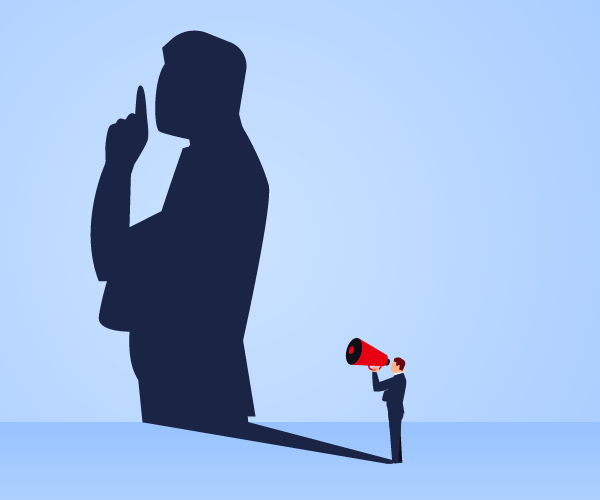
Can I Get Your Attention Please?
April 1, 2014
5 minute ReadCurious about this weekend’s weather? Go on; look it up. We’ll be here when you get back.
So that only took a minute, you say. But those minutes easily lead to hours, which become days and then weeks.
And all along, focus continues to erode.
A “quick” check of the forecast once required getting up out of the chair to find the paper or turn on the radio or TV, and perhaps waiting until 10 minutes before the hour to receive the news. It took more effort than being able to click a couple of times on the mouse or smartphone screen. You were able to tuck that thought away for a more appropriate, convenient time.
Today, however, instant access to information also means immediate availability of any number of distractions. It means success now comes not by managing time, but by managing attention.
Attention management is the latest attempt to keep us all on track; more traditional concepts of time management might consider handling a task most efficiency, but attention management is the cultivation of being able to focus on it long enough to get it done.
“So you pull up a document you intend to work on, and you receive notification of a text message,” said Maura Thomas, founder and chief productivity trainer, RegainYourTime.com, and public speaker. “You think, ‘Let me just check that.’ Out of the corner of your eye, you see an email coming in and need to read it. Now, where were you? Oh, you were wondering if it’s going to rain tonight. So you think, ‘I’ll just jump on the web and check that.’ If you allowed 30 minutes to do that original task, but you spent all of the time switching between the other things that called out for your attention, it doesn’t change the fact that 30 minutes still have passed. But because you didn’t devote your attention to it, you likely made very little progress, and if you did, the quality was probably much lower.”
Every time this happens, we condition ourselves further into a state of constant distraction, “and before you know it,” she said, “you can’t hold your attention on anything for more than a couple of minutes at a time. Focus is like any other skill. If you don’t use it, you lose it.”
TECHNOLOGY TO THE RESCUE?
Granted, there are any number of apps, websites and programs aimed at increasing productivity, promising to help overscheduled and terribly busy small business owners, entrepreneurs and others better manage their days. Each attacks the issue from a different angle, whether helping the participant to quickly and easily opt out of unwanted email subscriptions (https://unroll.me); set limits on visiting unproductive websites (http://getcoldturkey.com); dictate or manually enter on-the-go notes, even if handwritten (https://evernote.com); or see email conversations in a scannable, swipe-able, chat-like view (www.mailboxapp.com).
These may well help. But before investing time — and possibly money — in a solution, Thomas suggests something simpler first: tracking your attention, and figuring out the triggers for your distractions.
“You can’t change a behavior you don’t realize you have,” she said.
If using a smartphone to check email, text or search the Internet is beginning to control your time, Thomas suggests performing an experiment. Over the weekend or during the evening, put the phone away, even if it’s only for a couple of hours. Keep a piece of paper handy, and every time there’s an urge to reach for that phone, she said, make a note of it.
“At the end of that period, whether it’s an hour or two or three, see how many times you did that,” she said. And to take it a step further, ask yourself what you were feeling when you made those marks. Were you bored? Curious? Was the need really important? Or was it simply mindless habit? That’s where awareness kicks in — and when behavior can begin to change.
FIRST THINGS FIRST
Lee J. Colan, Ph.D., co-founder of The L Group, Inc., leadership consultant, public speaker and author of 12 books, also recommends taking stock of your individual “80/20” experience.
“The 80/20 rule says that the most critical 20 percent of the things we do accounts for 80 percent of our output,” he said. “It’s about identifying those vital few things. The fact is, all work wasn’t created equally.” Following that formula, 20 percent of tasks performed have 16 times the impact on the remaining 80 percent of your tasks. As such, he recommends establishing the single most important goal each day, each month, each quarter “and never letting anything else take priority over that one thing.” It may be that an hour spent with the team or in strategic thought is really what moves the business forward, so nothing else should move it aside.
Too often, Colan said, leaders believe saying “no” is bad. But being effective — being focused — means being able to delineate between urgent and non-urgent tasks, as well as important and non-important ones. And then it becomes about what can be done, delegated, dumped or deferred.
It should be noted that attention management isn’t a uniquely North American topic. UK-based Graham Allcott, author of How to be a Productivity Ninja, speaks on much the same themes, delineating three different types of attention: proactive, active and inactive. Attention management is a subtle game, he wrote in a recent blog. “It’s worth thinking about your natural strengths and weaknesses here. Save tasks that you find particularly difficult for when your attention level is proactive, leave the intense-but-easier stuff for those active attention times, and try to save up the easy or dull stuff for when you’re capable of little else.”
SETTING THE EXAMPLE
As a leader, it’s important to remember that your own behavior influences the culture of your organization. It’s not enough to simply encourage attention management and focus among employees, Thomas said; it must be modeled. For those who like to send late-night emails to employees, for example, it might help to start them with “good morning” to set appropriate expectations of when they should be read. Likewise, if you’ve assumed that you have to respond to messages from others immediately, open up a conversation, and make sure you’re not imagining expectations that aren’t actually there.
Over time, Colan said, a lot has changed. But the basics of business, of being an effective manager and running an effective enterprise, really haven’t. It’s still about setting clear goals, having consistent operating procedures and reinforcing positive behaviors by recognizing a job well done.
And in coming days, “I believe there’s going to be more of a premium placed on those who can focus their time and attention, too,” Colan said. “I do think it’s becoming more and more critical to be able to cut through the clutter.”







